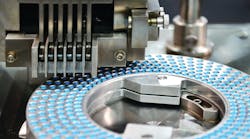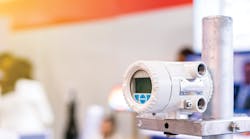Advanced Polymer Monitoring Technologies Inc. (APMT) received funding from the National Science Foundation‘s Small Business Innovation Research program to develop technology for biopharmaceutical analysis.
The $1.1 million funding supports the development of simultaneous multiple sample light scattering technology for monitoring stability and aggregation of biopharmaceuticals, the company said. APMT has also used the resulting Aggregation Rate Generator product (ARGEN) for other applications in synthetic and natural polymers.
ARGEN allows measurement of stability and degradation of solutions, dispersions and suspensions under computer controlled thermal, mechanical and chemical stimulus. According to APMT, applications to date include carbon nanotubes to therapeutic proteins.
Mike Drenski, chief technical officer at APMT, said: “Our ARGEN team has developed an impressive instrument incorporating proprietary hardware and software. The ARGEN product is now operational and actively generating unique data for several early users.”
The underlying patented light scattering technology was developed in Professor Wayne Reed’s group at Tulane University’s Center for Polymer Reaction Monitoring and Characterization (PolyRMC). Work at Tulane is continuing, with researchers exploring new applications of the technology.
“Through the generous support of the National Science Foundation, we are able to work directly with selected users to generate ARGEN data on relevant samples free of charge,” explained Alex Reed, APMT CEO. “We encourage anyone wishing to learn more about ARGEN’s capabilities in monitoring stability and aggregation in biopharmaceutical applications to contact us for more information.”


